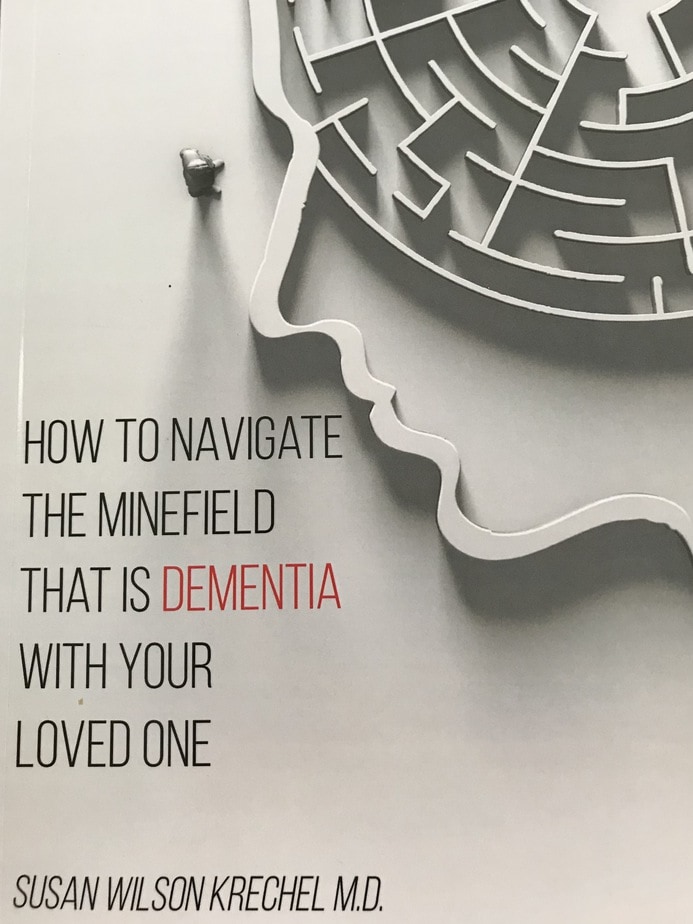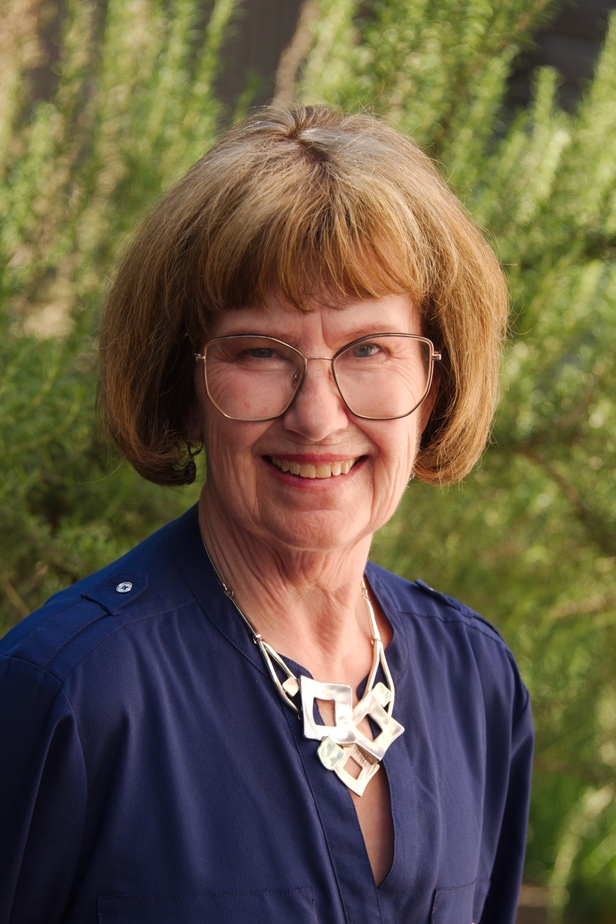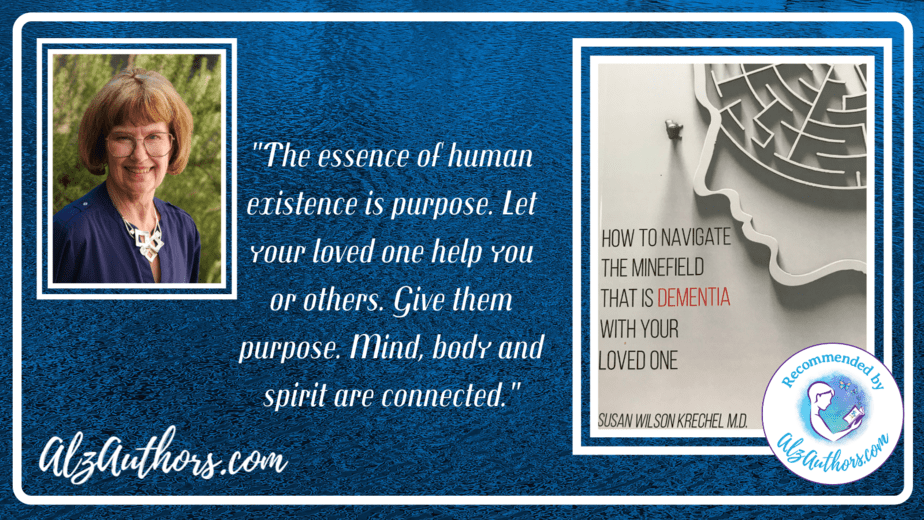 By Susan Wilson Krechel, M.D.
By Susan Wilson Krechel, M.D.
When my own health failed and I was forced to send my dear husband into the dementia care system, I was lost. Suddenly, days filled with the rewarding activities of caregiving were gone. While working to return to a healthier state, I needed something meaningful to occupy my mind. I had no stamina, so going back to medical practice or even volunteering would be problematic.
One morning I awakened with a single thought: tell our story. While I was navigating the dementia minefield, I had found little written material to guide me, so I felt that I might be able to help others who also found themselves on this difficult path.
I wanted to share an understanding of the disease and offer hope for the future, so I underwent a deep dive into medical literature and shared the information in layman’s terms. My hope is that a greater understanding of the disease will remove the stigma associated with it. Individuals, who have dementia can experience and bring great joy, those who fail to understand this miss out on that joy.
I found that caregiving was both physically and financially stressful. In my journey I learned about how to avoid this physical and financial stress, the hard way. I share this important information with my readers.
For both the individual experiencing dementia and the caregiver, my book How to Navigate the Minefield that is Dementia with Your Loved One offers scientifically based information on how to delay the progression of the disease. Lifestyle changes, such as improved sleep habits, plant -based diets, socialization, blood pressure control, exercise and other lifestyle modifications can achieve this goal. It is important to seek the services of an eldercare attorney sooner rather than later.
Tips for the caregiver include the fact that dementia is ageing in reverse. Testing is available to determine brain age. Your loved one will progress backward from responsible adult to unruly teenager with poor judgment, then onto the playful 6-year-old, next, the totally dependent 2-year-old. Understanding this simple concept makes caregiving easier. We all know how to care for children with love and understanding.
Seldom is it appropriate to drug our children with mind-altering prescriptions, the same should be true of loved ones living with dementia. To do so robs them of their humanity.
The essence of human existence is purpose. Let your loved one help you or others. Give them purpose. Mind, body and spirit are connected. When the mind fails, one must build up the body and spirit. Exercise is a critical component of well-being, as well as nourishing the spirit through music, poetry, dancing, church services, or whatever else that might sustain your loved one’s spirit. Be sure to give them access to these tools.
These and other tips are shared in my book. I hope you will find that once you have read this book, it will become a useful reference. Please share it with others so that they may understand how to help you bring dignity and purpose to the life of your loved one living with dementia.
 About the Author
About the Author
Physician, Educator, Researcher, Author, Speaker and Advocate
Dr. Susan Krechel earned her M.D. degree from the University of Louisville Medical School. Following an Internship and Residency in Anesthesiology, she began a career doing research in academic medicine, along with teaching medical students and residents.
Dr. Krechel edited the first textbook of Geriatric Anesthesia, “Anesthesia and the Geriatric Patient” and also authored or co-author 37 scientific papers. She has spoken at 45 National and International meetings and was a Visiting Professor in New Zealand. Some of her work has been seen on NBC Nightly News and the Today Show.
Susan met and married her soul mate and the love of her life, Oliver Anthony Krechel, early in her career. As an architectural engineer, he too had business around the world, enabling them to travel together.
Susan and Oliver spent their non- working time raising horses, show dogs and tree farming. In addition to traveling, they continued these activities into retirement.
Following a small stroke, Oliver was diagnosed with Dementia. Susan applied her academic skills to the study of dementia and became an advocate not only for Oliver, but for others as well.
Her book, How to Navigate the Minefield that is Dementia with Your Loved One was written as a labor of love, designed to share Dr. Krechel’s first-hand knowledge of dementia and caregiving.
Connect with Susan:



2 Responses
My husband has dementia and was diagnosed 5 years ago. I had to put him in a facility
I am truly sorry to hear that. Entering a facility is the hardest part.. I hope you found a place that you can both live with.